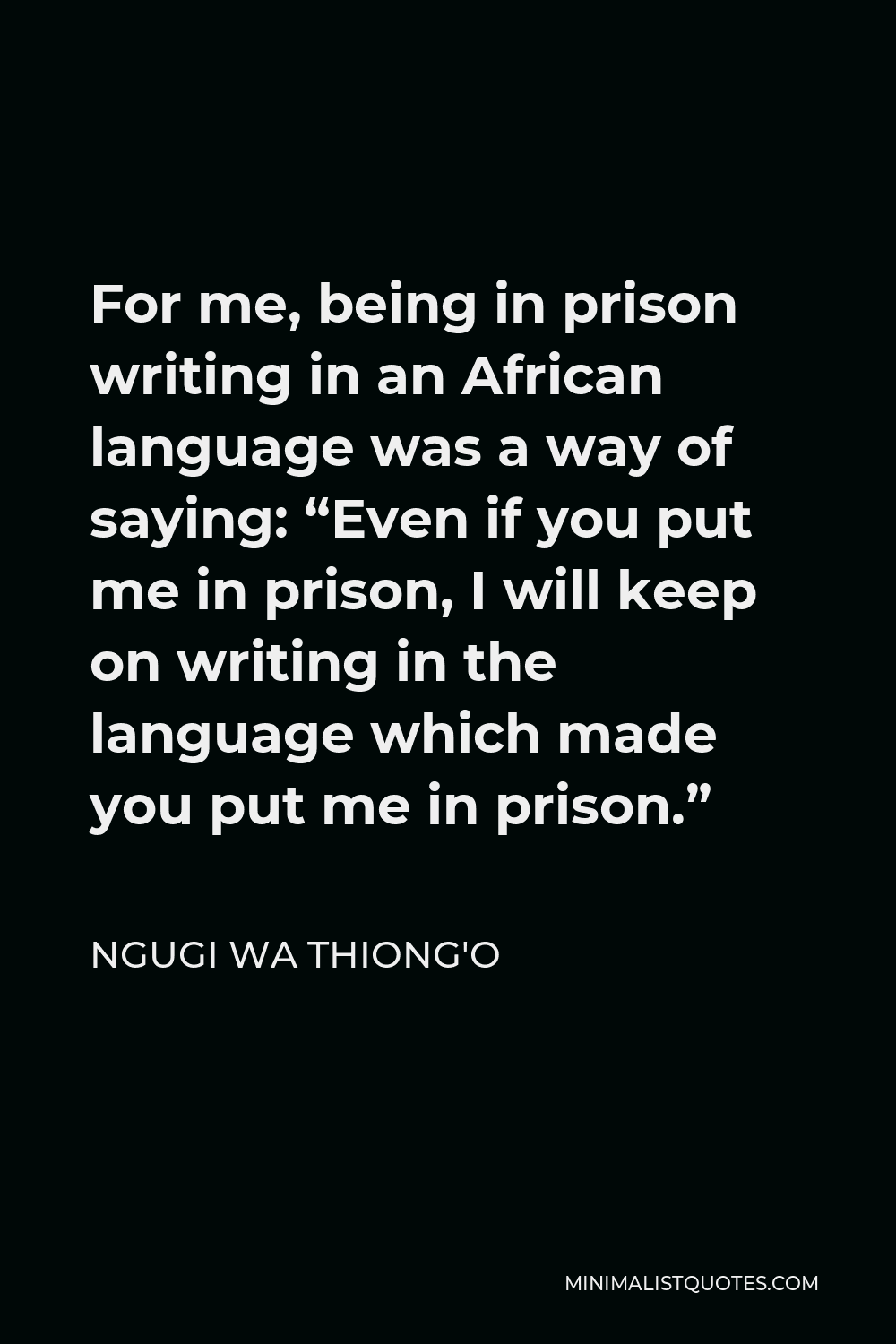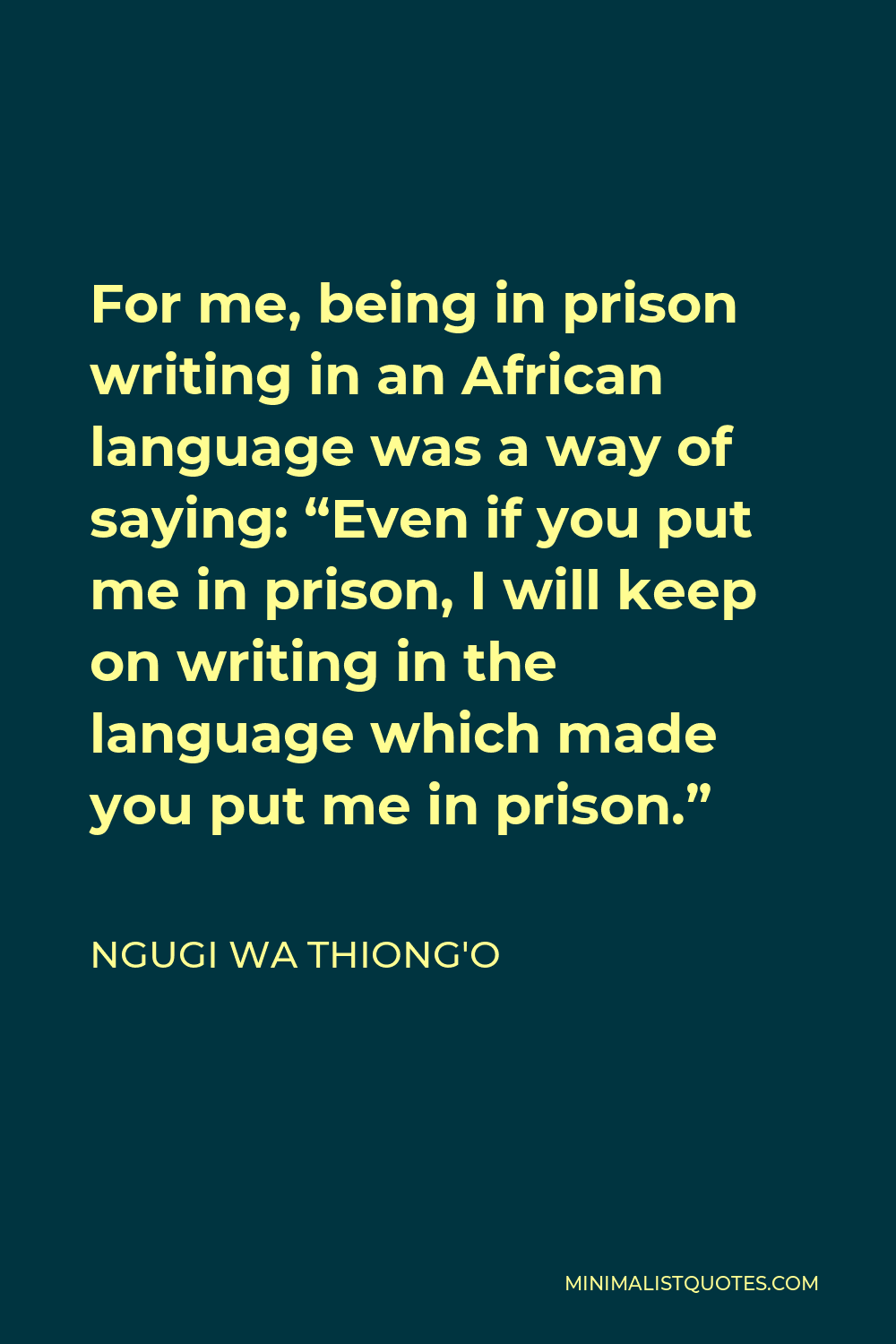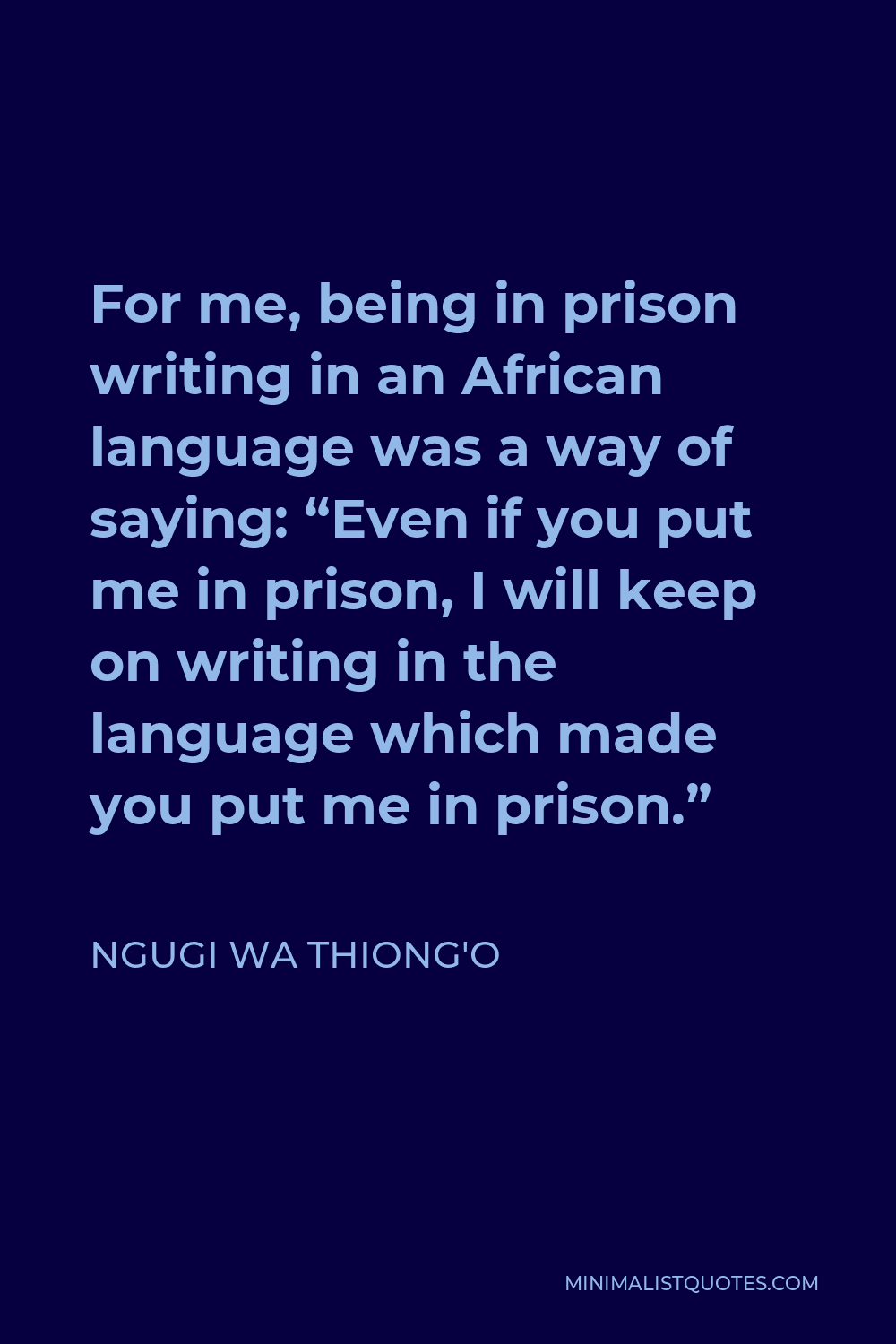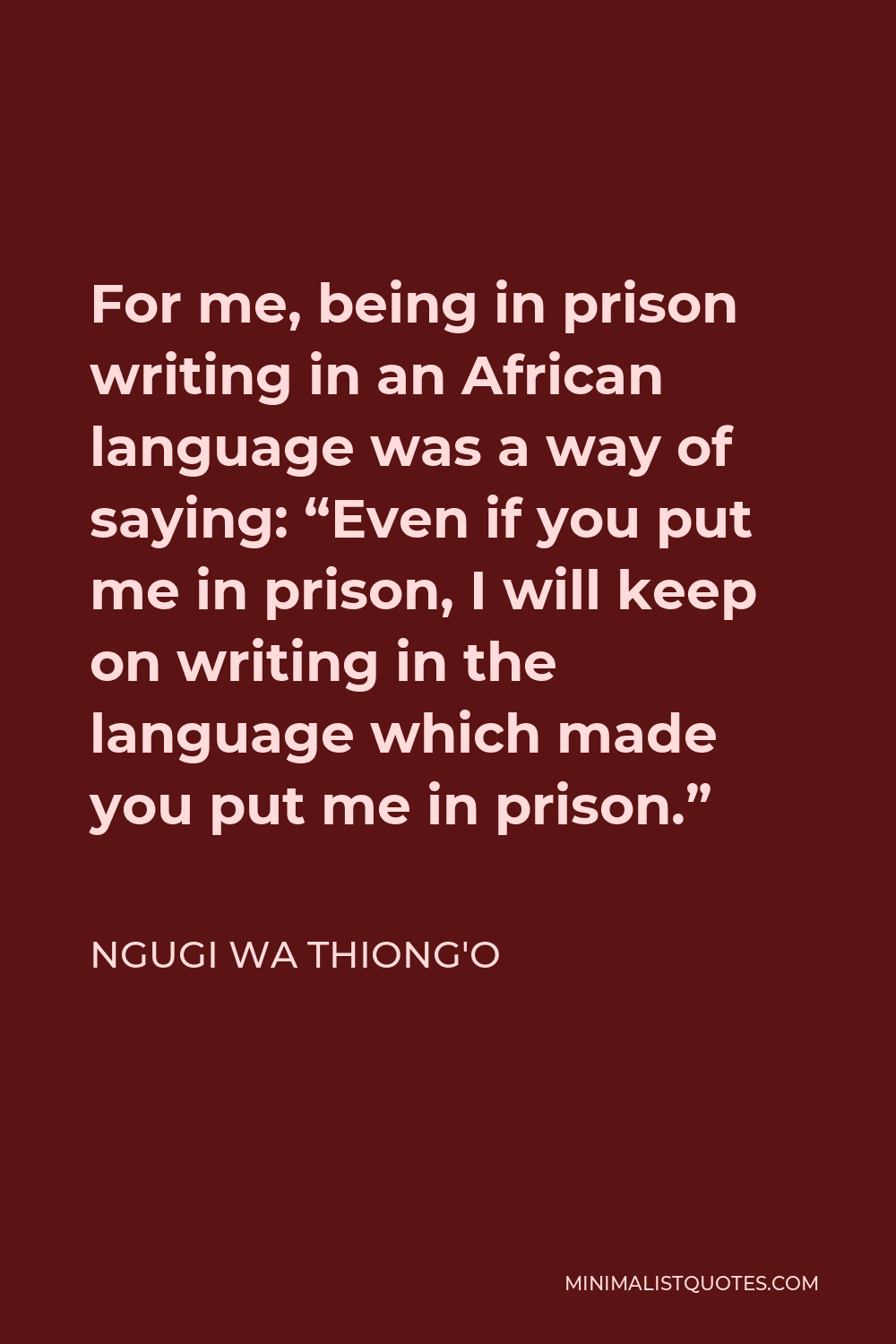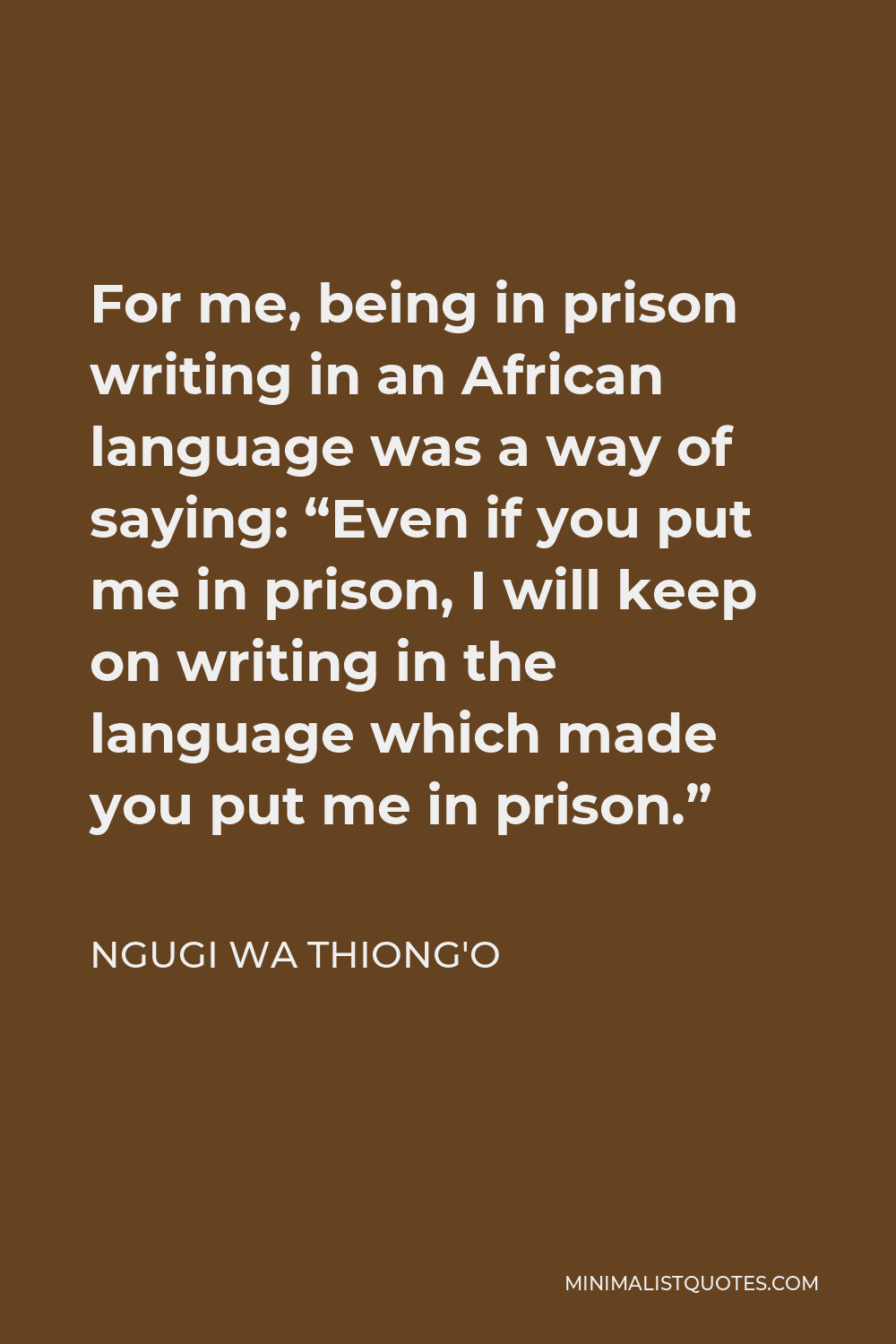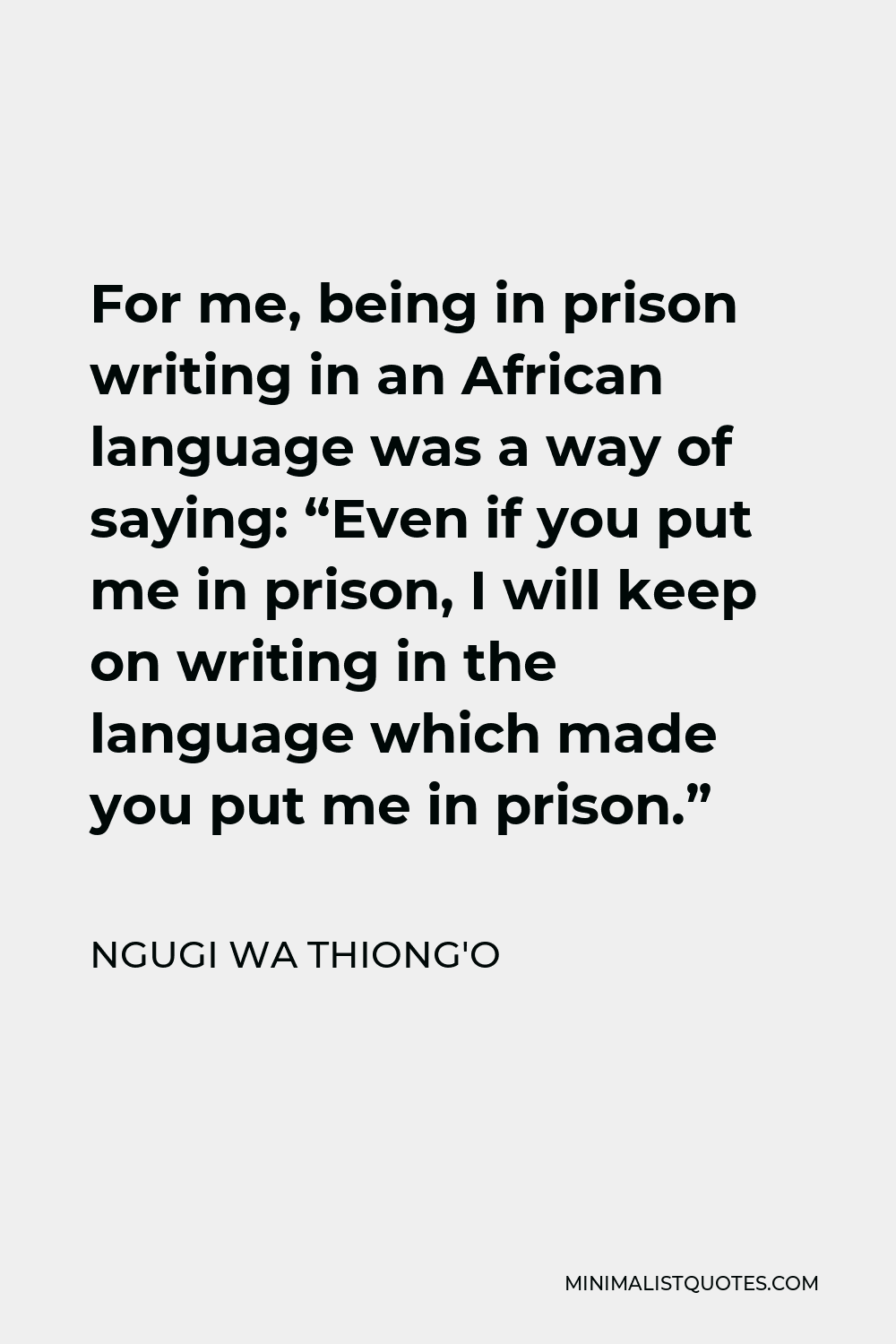Christianity and Western civilization-what countless crimes have been committed in thy name!
NGUGI WA THIONG'OFor me, being in prison writing in an African language was a way of saying: “Even if you put me in prison, I will keep on writing in the language which made you put me in prison.”
More Ngugi wa Thiong'o Quotes
-





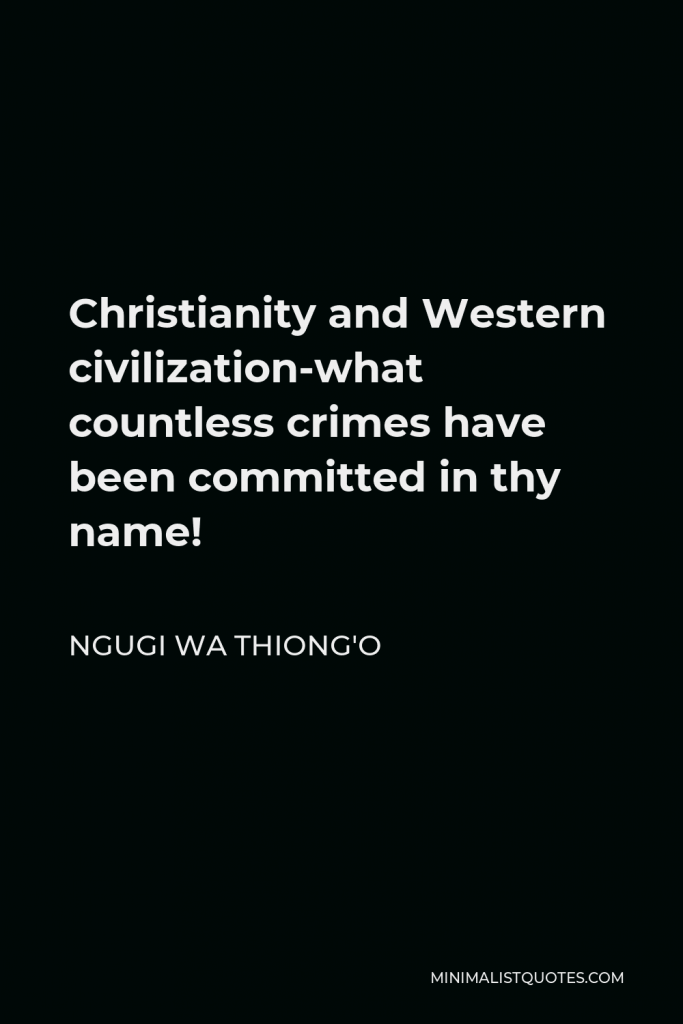

-





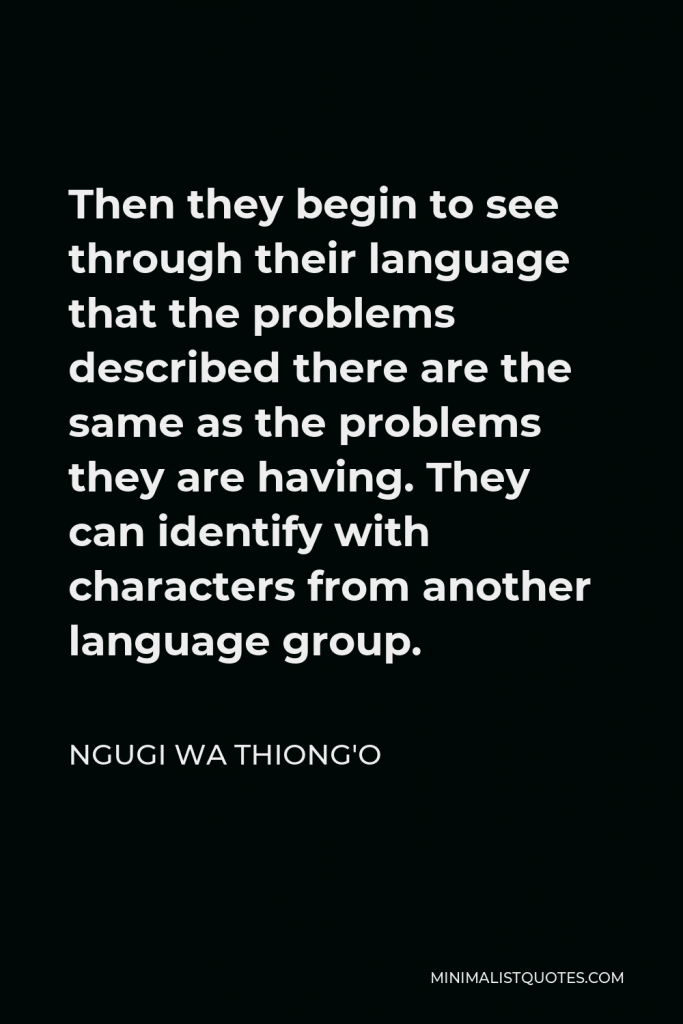

Then they begin to see through their language that the problems described there are the same as the problems they are having. They can identify with characters from another language group.
NGUGI WA THIONG'O -





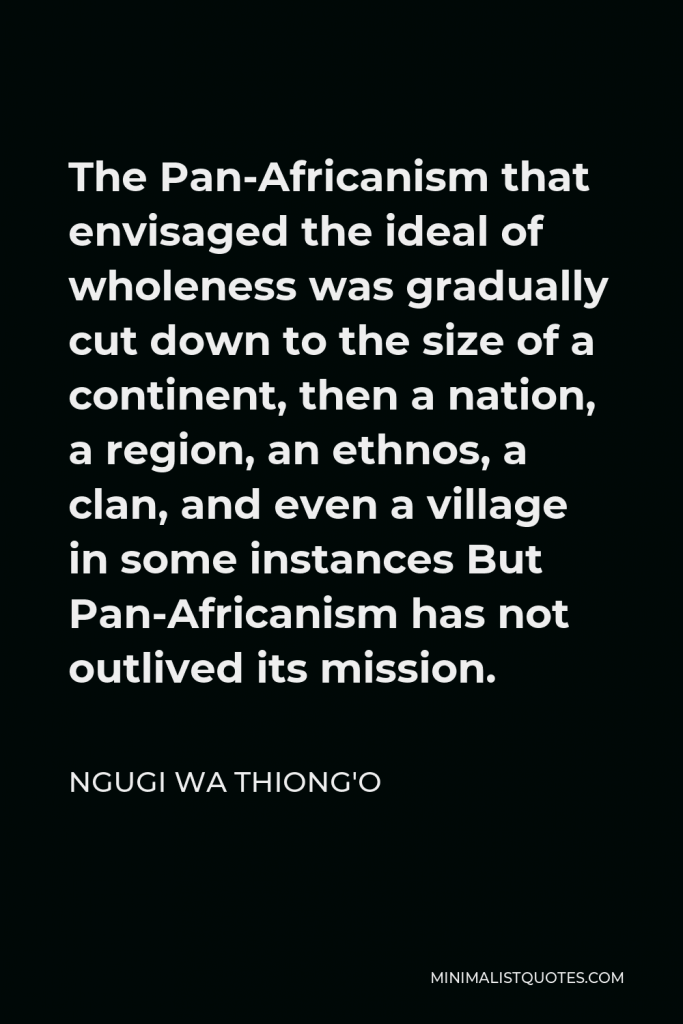

The Pan-Africanism that envisaged the ideal of wholeness was gradually cut down to the size of a continent, then a nation, a region, an ethnos, a clan, and even a village in some instances But Pan-Africanism has not outlived its mission.
NGUGI WA THIONG'O -





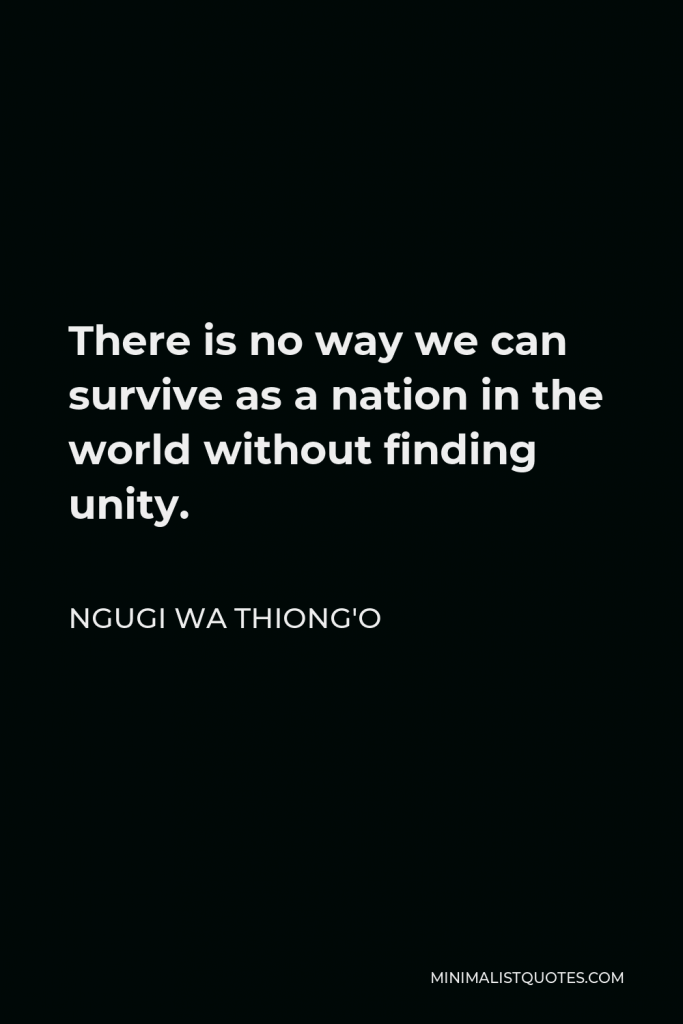

There is no way we can survive as a nation in the world without finding unity.
NGUGI WA THIONG'O -





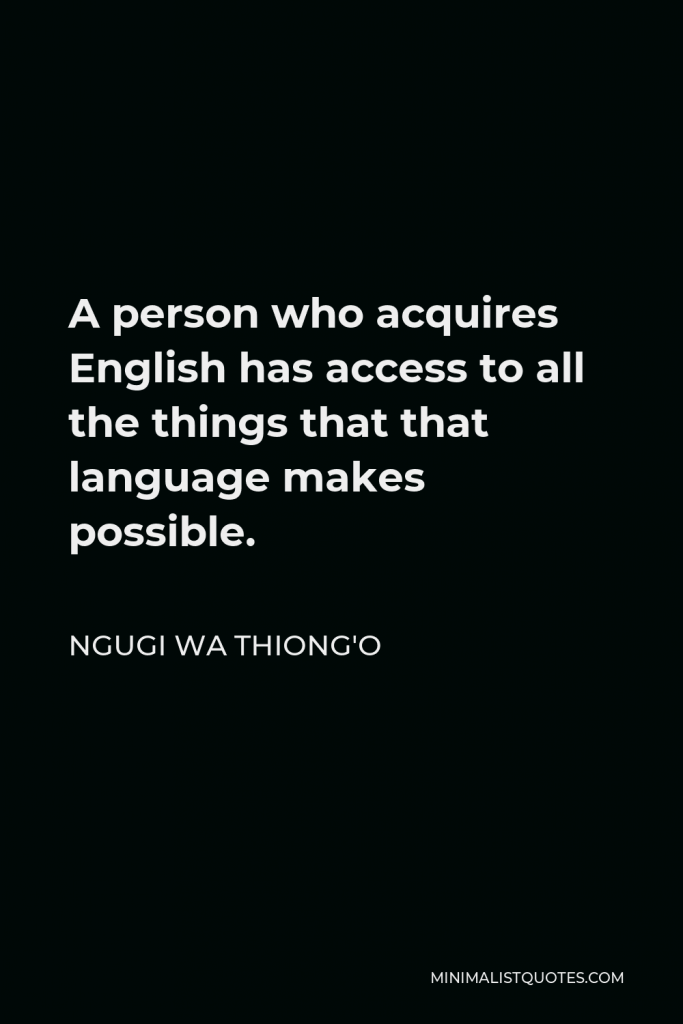

A person who acquires English has access to all the things that that language makes possible.
NGUGI WA THIONG'O -





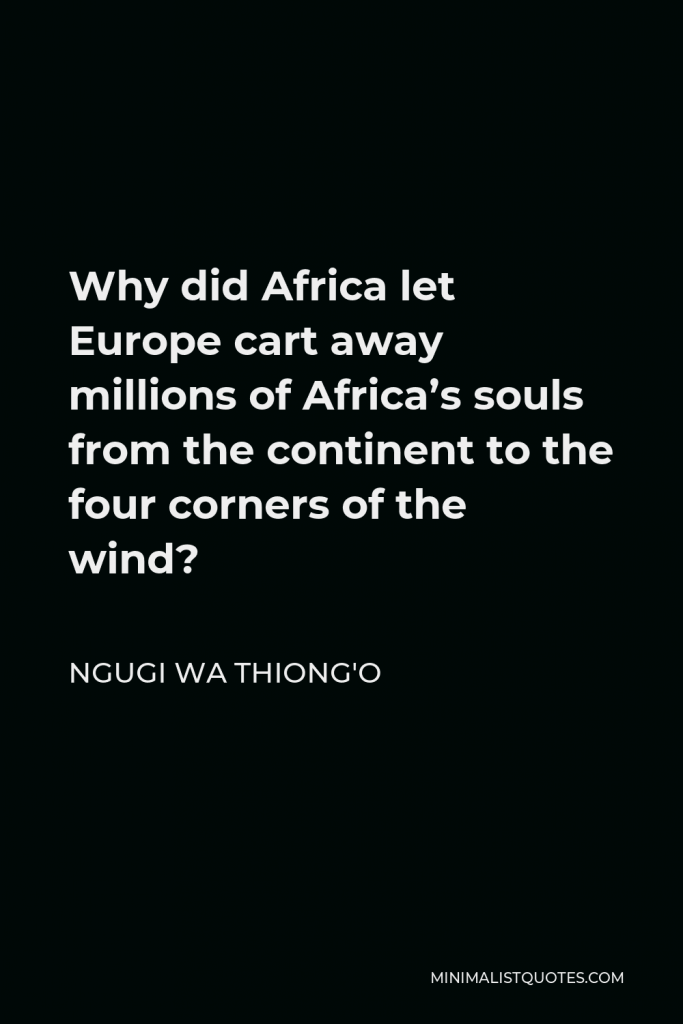

Why did Africa let Europe cart away millions of Africa’s souls from the continent to the four corners of the wind?
NGUGI WA THIONG'O -





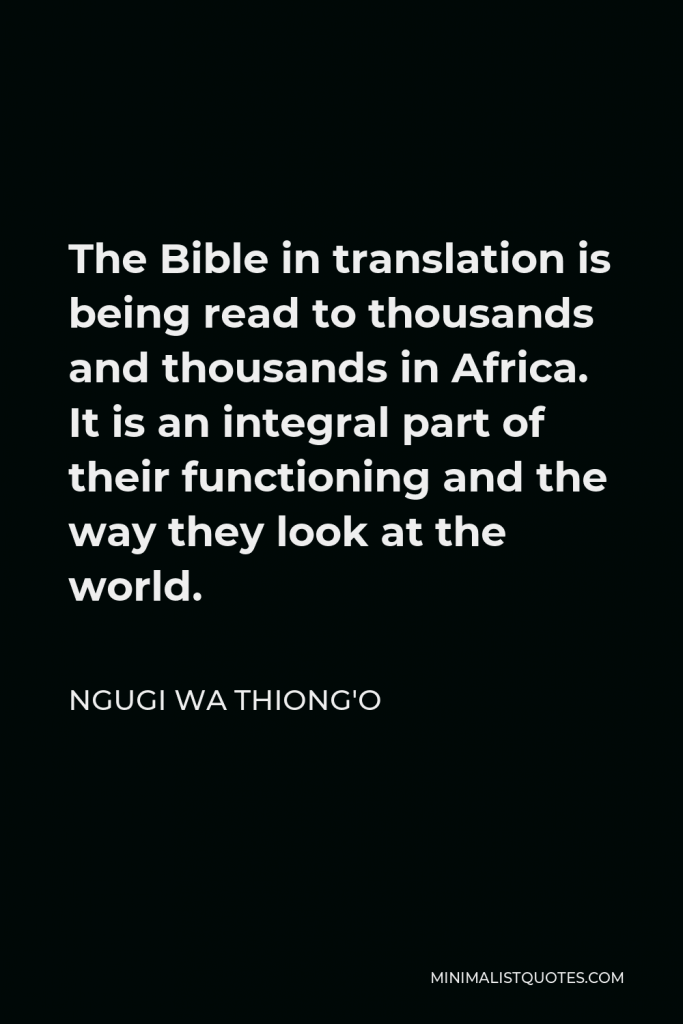

The Bible in translation is being read to thousands and thousands in Africa. It is an integral part of their functioning and the way they look at the world.
NGUGI WA THIONG'O -





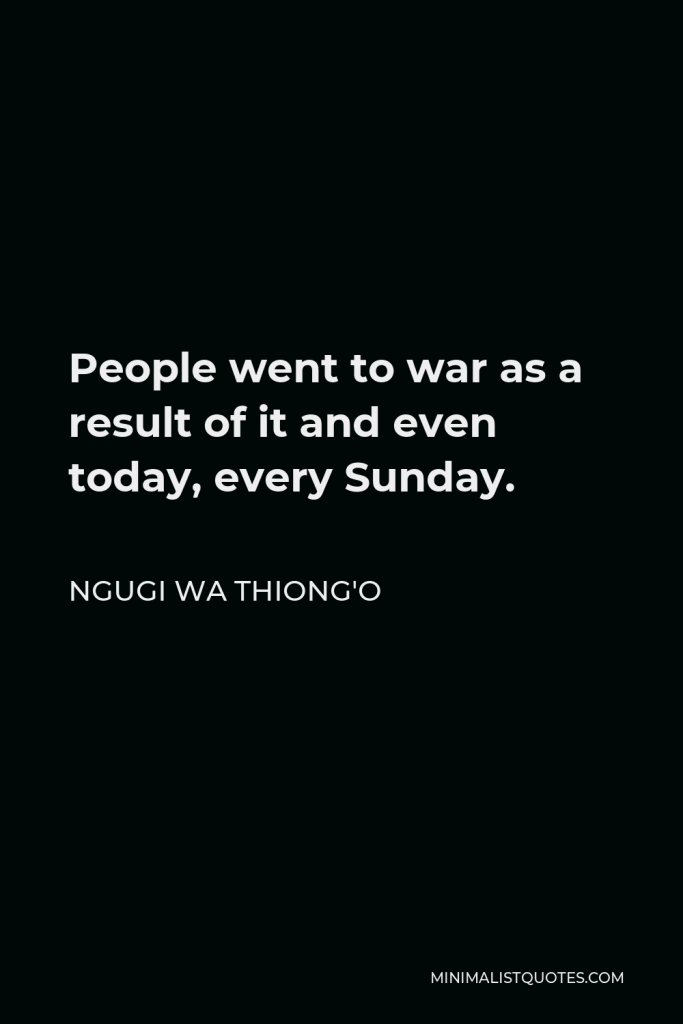

People went to war as a result of it and even today, every Sunday.
NGUGI WA THIONG'O -





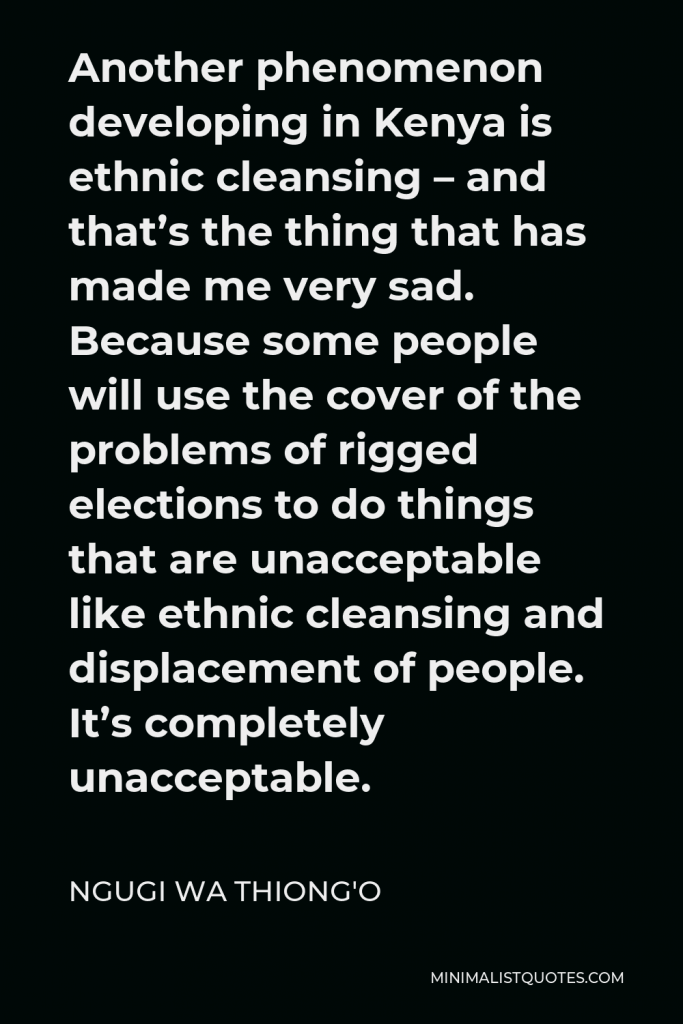

Another phenomenon developing in Kenya is ethnic cleansing – and that’s the thing that has made me very sad. Because some people will use the cover of the problems of rigged elections to do things that are unacceptable like ethnic cleansing and displacement of people. It’s completely unacceptable.
NGUGI WA THIONG'O -





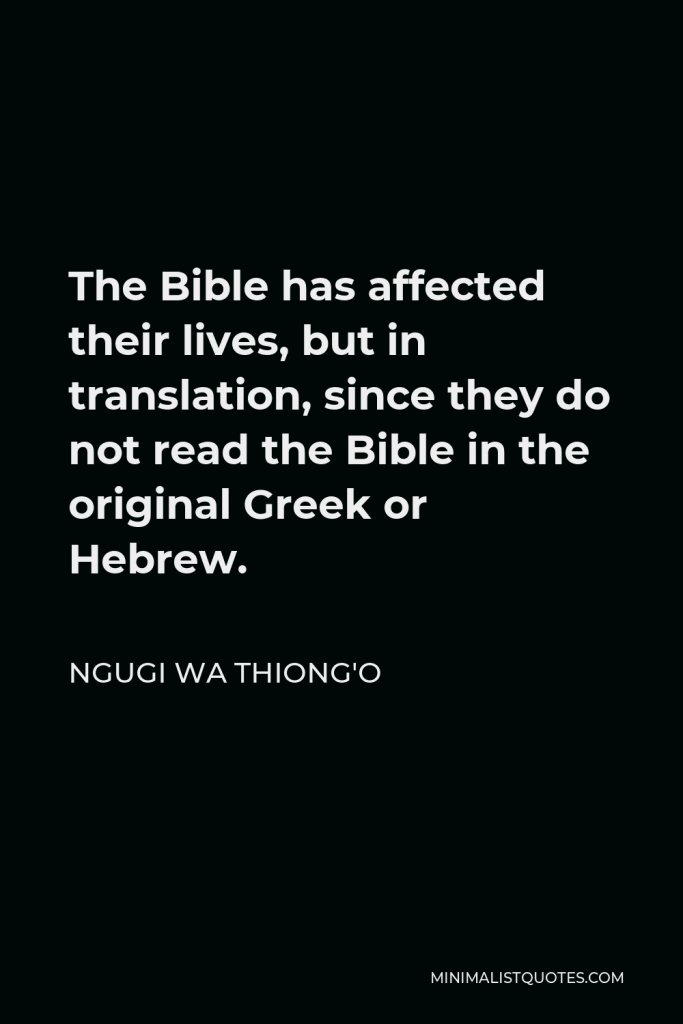

The Bible has affected their lives, but in translation, since they do not read the Bible in the original Greek or Hebrew.
NGUGI WA THIONG'O -





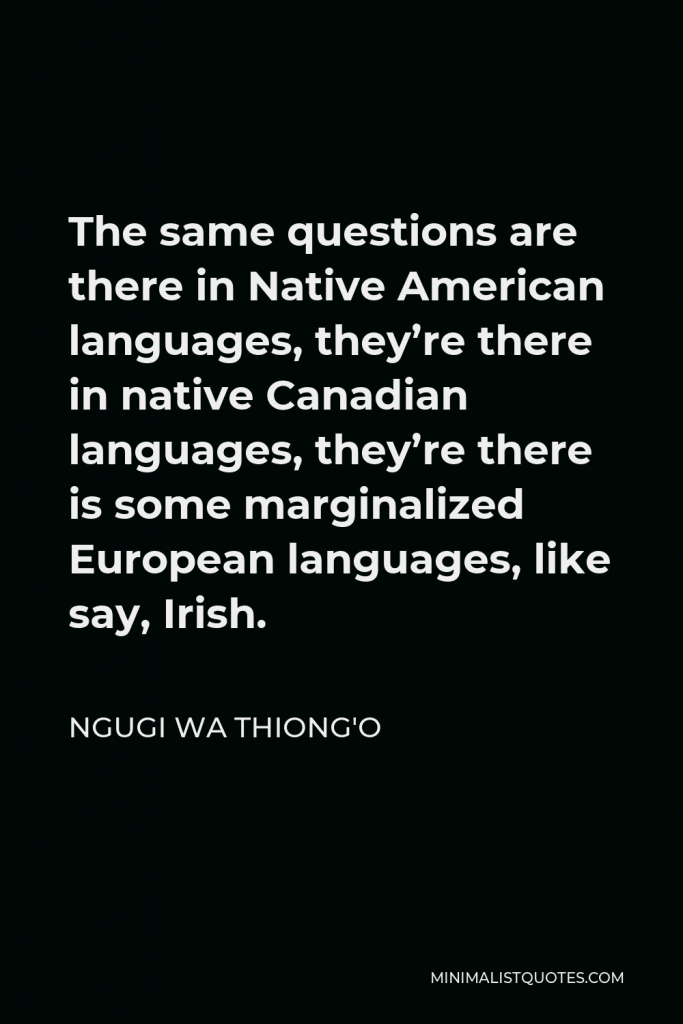

The same questions are there in Native American languages, they’re there in native Canadian languages, they’re there is some marginalized European languages, like say, Irish.
NGUGI WA THIONG'O -





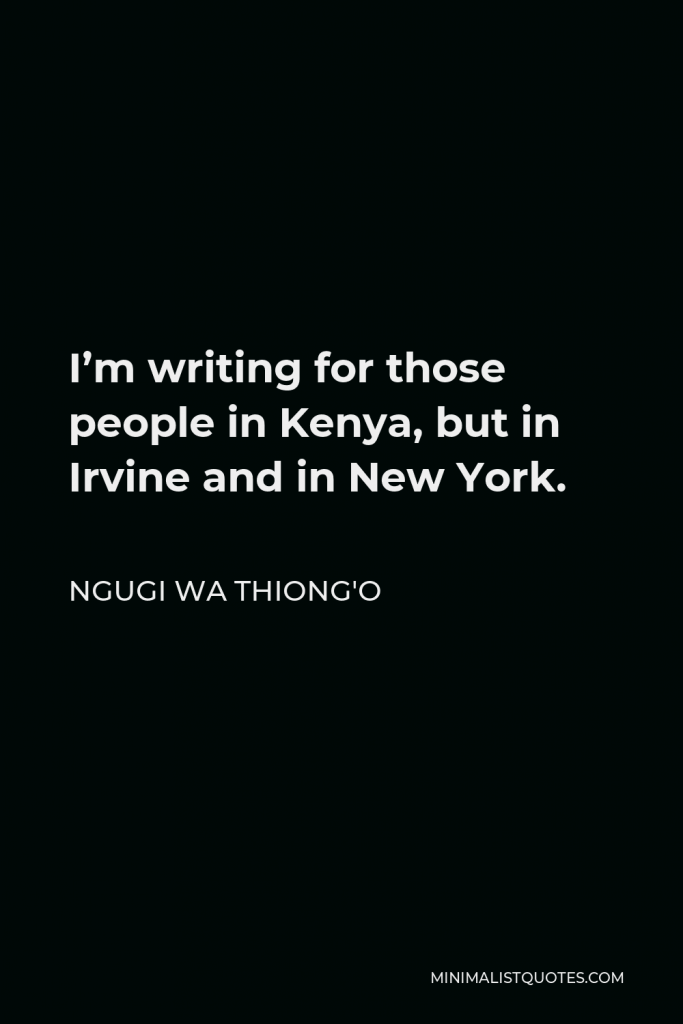

I’m writing for those people in Kenya, but in Irvine and in New York.
NGUGI WA THIONG'O -





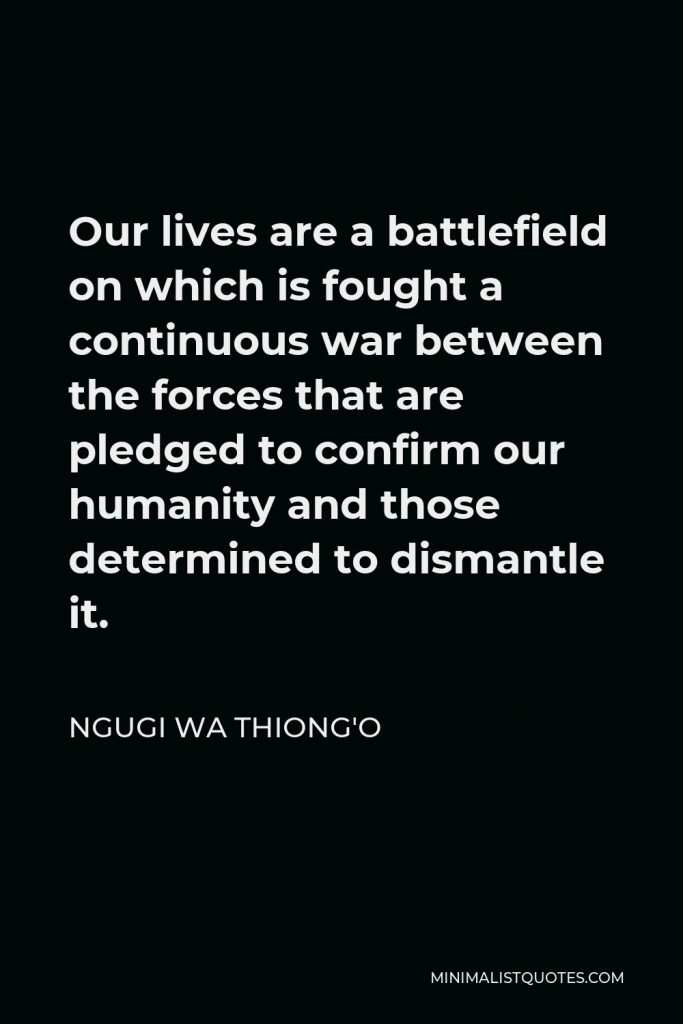

Our lives are a battlefield on which is fought a continuous war between the forces that are pledged to confirm our humanity and those determined to dismantle it.
NGUGI WA THIONG'O -





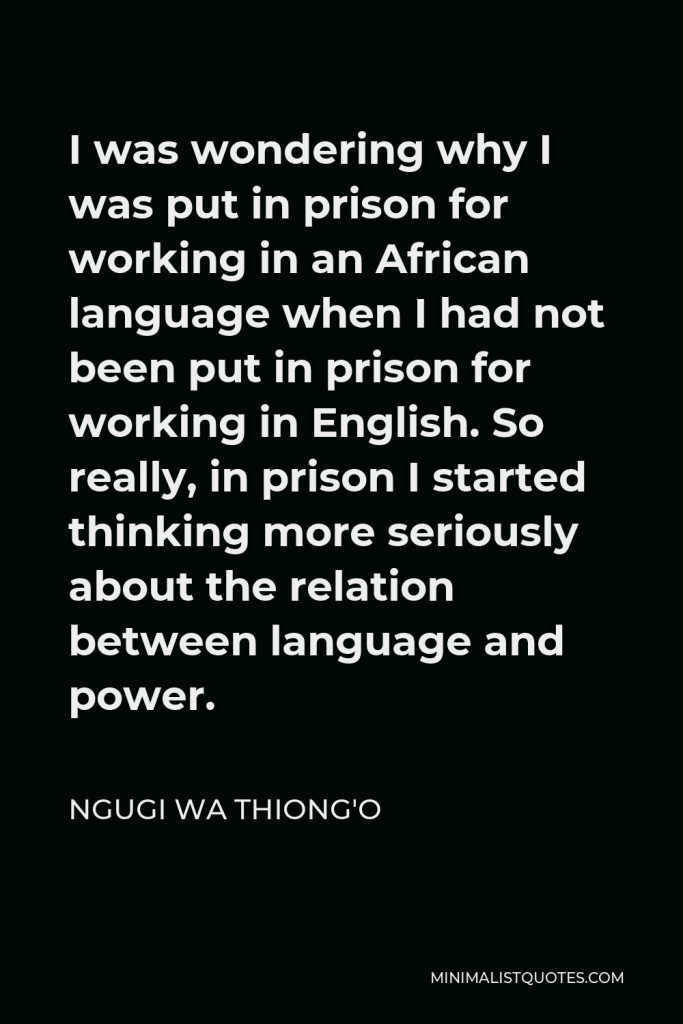

I was wondering why I was put in prison for working in an African language when I had not been put in prison for working in English. So really, in prison I started thinking more seriously about the relation between language and power.
NGUGI WA THIONG'O -





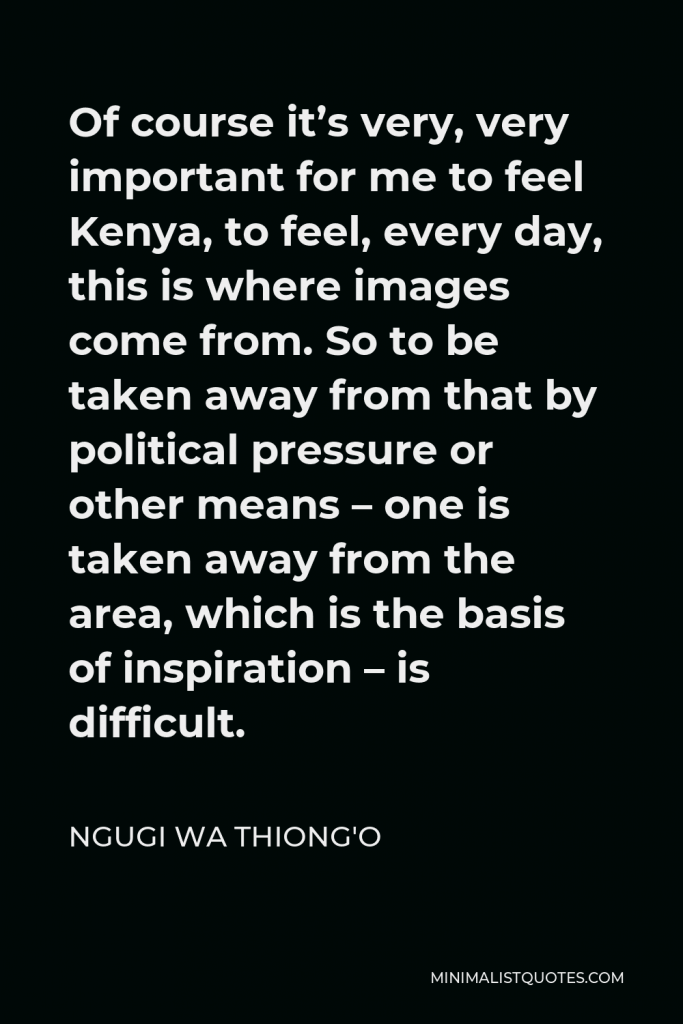

Of course it’s very, very important for me to feel Kenya, to feel, every day, this is where images come from. So to be taken away from that by political pressure or other means – one is taken away from the area, which is the basis of inspiration – is difficult.
NGUGI WA THIONG'O -





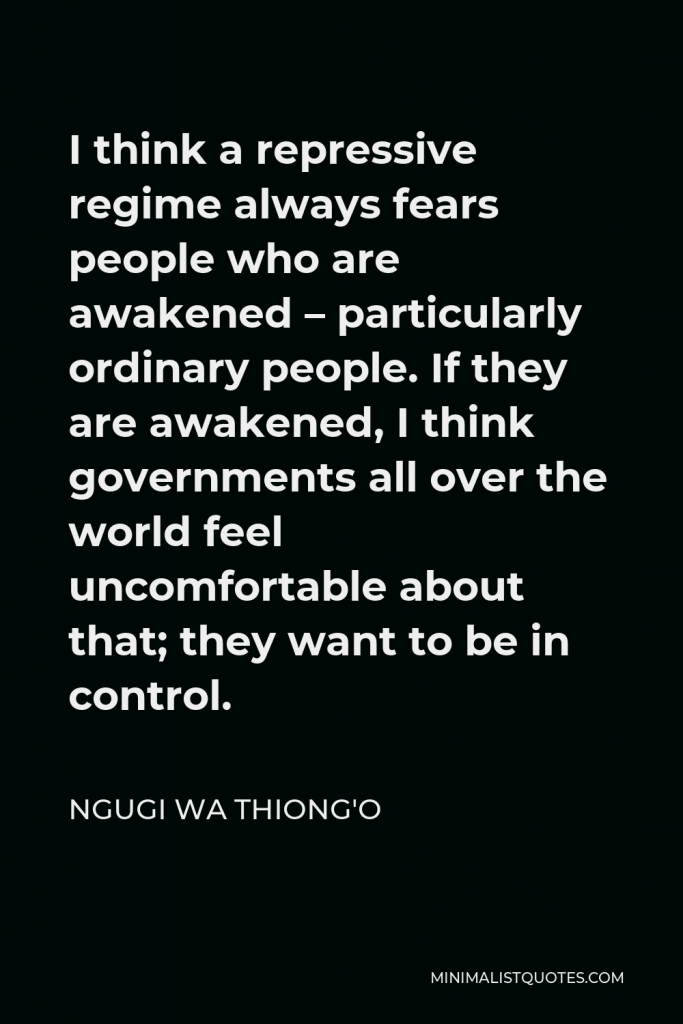

I think a repressive regime always fears people who are awakened – particularly ordinary people. If they are awakened, I think governments all over the world feel uncomfortable about that; they want to be in control.
NGUGI WA THIONG'O
